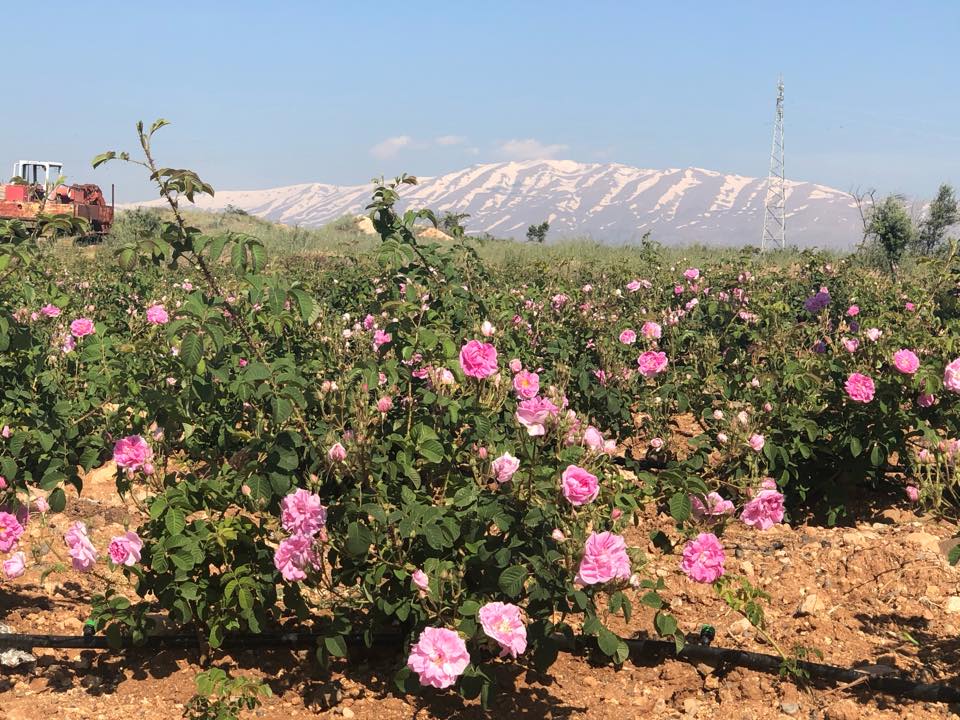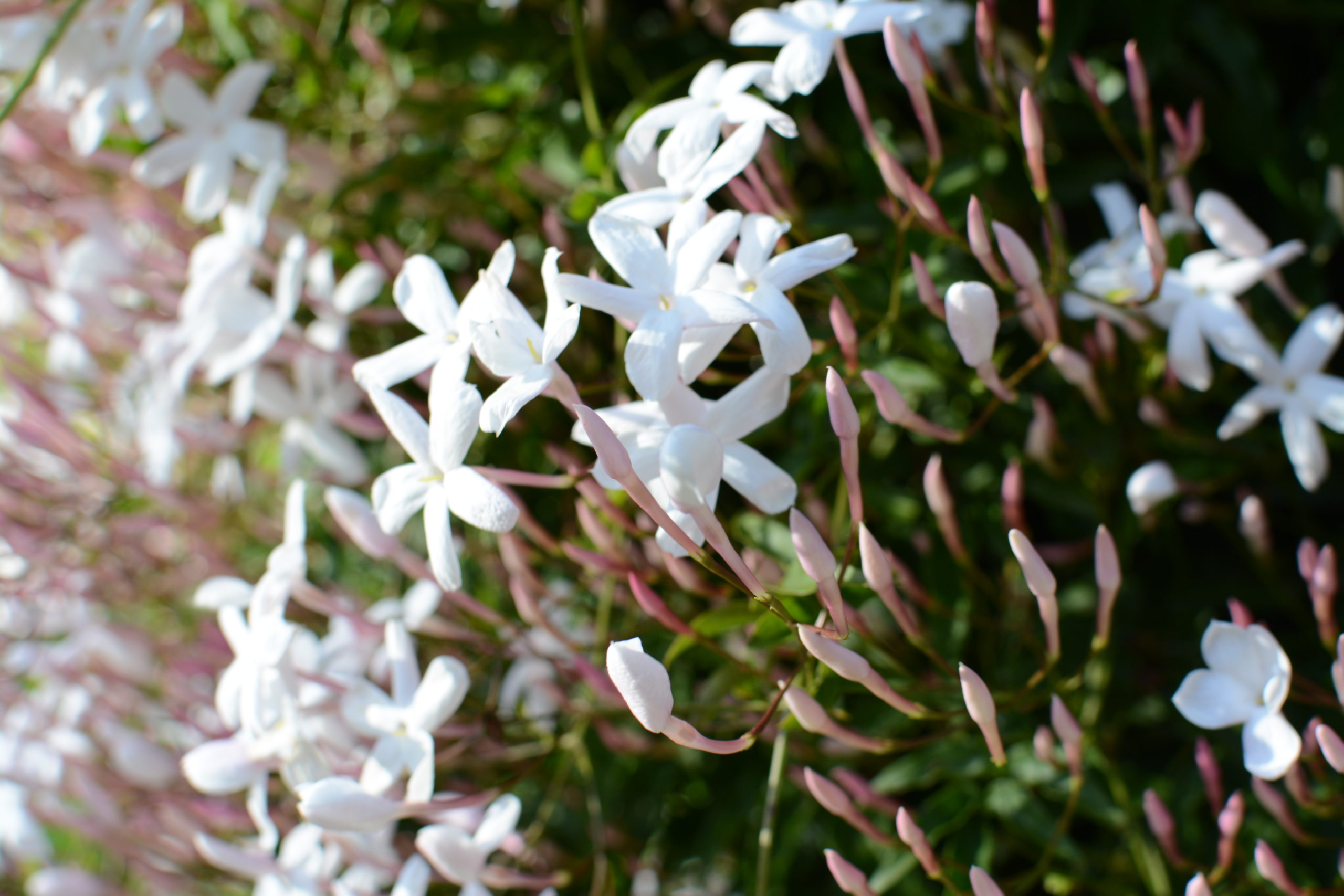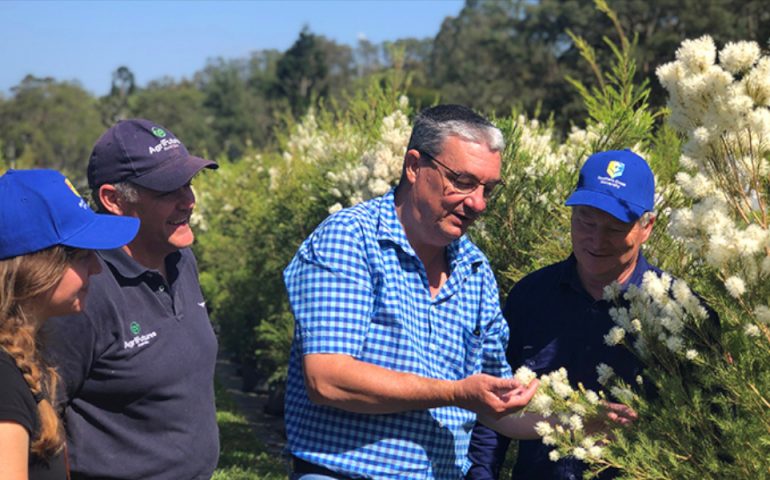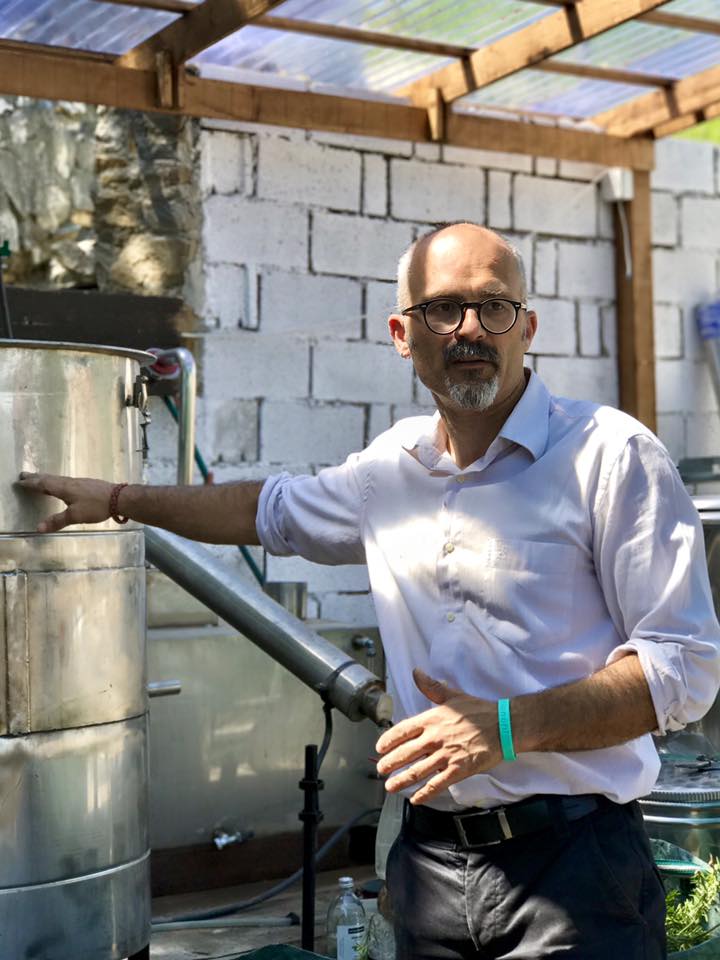by Robert Tisserand
 A field of roses in Syria, image courtesy of BioCham
A field of roses in Syria, image courtesy of BioCham
The supply-demand dynamic for essential oils has always been a delicate thing. Prices fluctuate, but generally trend upward. In the past 50 years, the price of Indian Sandalwood oil has increased by about 200 times, although one reason for that has been the exploitation and consequent reduction of the natural resource. If supply exceeds demand for an essential oil then prices at source may drop, but these savings are generally minimal and are not passed on to the consumer. Surges in demand stretch supply chains, and with the coronavirus pandemic, significant changes are likely, especially where there is an already fragile economy.
I sent an informal survey to suppliers and sellers in various countries, and most are quoted below. We also surveyed our Facebook audience to see what the situation is from the consumer point of view. This is not a comprehensive review, but provides some insights into the various aspects of the supply chain, how different sectors have been affected, and what the future may look like for essential oils.
Most consumers have not seen very much interruption. In our Facebook survey, more than half reported “no change” to the availability of essential oils in general. A few reported shipping delays – “I was able to get all I needed but the post was a little slow” – and three small manufacturers reported difficulties in obtaining packaging supplies. However, a little digging shows an industry facing a combination of challenges. Consumer demand for many essential oils has increased, especially for antimicrobial oils such as Tea Tree and Eucalyptus. However, these are “commodity oils” – relatively inexpensive, and produced and consumed on a large scale. The picture looks very different for specialist essential oils and absolutes.
Growers are vulnerable
Aromatic plant growers/producers/distillers need to plan months or years ahead, and basically gamble on what demand will look like, unless their direct customers – manufacturers, wholesalers, exporters – make firm, long-term commitments. Some such relationships do indeed exist, but they are the exception rather than the rule, because most buyers prefer the freedom to look for the best deal. Some aromatic plants (Frankincense, Jasmine, Ylang-Ylang, Geranium, Vetiver…) are grown by a host of small farmers that are a part of a collective, and distillation and export are carried out centrally by larger enterprises. (This is not a criticism, just an observation.) Not only are plants vulnerable to weather, disease, even politics, but some crops also depend on itinerant workers for picking or harvesting. The “downward” pressure on prices is not ideal for a fair-trade environment, and may be compared to the coffee or cocoa industries. Unfortunately – for the consumer – price and quality are not necessarily linked, and there is little “supply chain transparency” in the industry.
In 2016 Hurricane Mathew devastated Haiti, leaving some 35,000 people homeless. Haiti is one of the main producers of Vetiver oil. Currently, there are plagues of locusts in Africa and India, though the effects on essential oil production are unknown. The massive wildfires in Australia in 2019 did affect some Tea Tree plantations. Most survived with little or no damage, though towards the end of the year conditions were unusually dry.
 Marco Valussi, PhD, during harvest.
Marco Valussi, PhD, during harvest.
Marco Valussi is a producer in Trentino, Italy, and sells under the name Magnifica Essenza. He saw increased demand for Tea Tree, Eucalyptus, Norway Spruce and Silver Fir, but added: “For a couple of months, the pandemic completely stopped the conifer logging activity in our region, and since we depend on that for our supply of fresh material, we had to stop distilling pines, firs and spruces in the best period, and now we’ll have to distill later when the yields will be lower… this will increase prices because of the lower yields, and will likely create bottlenecks because of overlapping with other, more time-sensitive crops such as lavender.” He added: “I feel that in our case the greatest damage occurred not because of missed distillations, but because of disruption of the whole organization: too many people had to remain at home and were concerned about more pressing issues, so that the seasonal planning of cultivation, harvesting schedule etc. suffered.”
This illustrates the importance of timing in relation to harvesting for a small producer, as well as the fragility of small productions that rely on community-based workers.
High-end aromatics
Some crops are much more labor-intensive than others. Tea tree, Lavender and Oranges, for example, are often harvested mechanically, but flowers on bushes need to be hand-picked. The Bulgarian farmer in this video is explaining why she is tearing up her rose bushes. It’s not just that there’s too much rose oil on the market, but that growers and pickers are not paid enough to make growing Rosa damascena worthwhile – at least in Bulgaria. This rose oil is also produced in Turkey, Iran and Syria (see top image), and conflict can also play into the situation. Roula Ali-Adeeb, of BioCham in Syria, sometimes confronts the challenge of picking roses to the sound of distant gunfire. Now the coronavirus pandemic is adding an extra challenge to the mix. (Rosa damascena is named for the city of Damascus.)
The main sector of the broader industry to be affected has been fine fragrances – those pricey products that we see in department stores, shopping malls, airports, boutiques, spas. Sales are down about 80% worldwide. It’s true that the bulk of the ingredients in these products consist of synthetic fragrance chemicals. But, high-value naturals such as Rose oil and Jasmine absolute are still important ingredients in some, and now fragrance manufacturers have had to rapidly re-calculate and adapt. Some facilities have moved over to producing hand sanitizers.
 An Egyptian producer of essential oils and absolutes told me that overall demand for their products was down 59% in April 2020 compared with 2019, adding “…uprooting of Jasmine bushes is possible to quite probable at the end of the year if no mitigation/support is provided to us by our clients…Without a solution to this problem we are talking of a normally 7 months long season (and all the livelihoods depending on it for approx. 50-75K farmers, pickers, and immediate related dependents) turning into a 2 (at most 2.5) months long season.”
An Egyptian producer of essential oils and absolutes told me that overall demand for their products was down 59% in April 2020 compared with 2019, adding “…uprooting of Jasmine bushes is possible to quite probable at the end of the year if no mitigation/support is provided to us by our clients…Without a solution to this problem we are talking of a normally 7 months long season (and all the livelihoods depending on it for approx. 50-75K farmers, pickers, and immediate related dependents) turning into a 2 (at most 2.5) months long season.”
Nick Irani, of Subtle Energies in Australia, also mentions that their Indian supplier of Jasmine Sambac absolute has seen a reduction in demand from the fragrance industry, saying “I believe that will be short term, but there is so much we do not know that is going to happen.” Many Subtle Energies customers are hotels and spas and the demand for product from that sector has fallen to zero.
The demand surge
Tea Tree and Eucalyptus seem to be the most in-demand essential oils. From our Facebook comments: “I work for a supplier in Australia. During the initial panic, demand for tea tree oil and eucalyptus oil went through the roof and our essential oil sales in general boomed. We were worried our supply lines would be interrupted so stocked up on essential oils but reordering the various oils now that things are normalizing, has not seemed a problem.”
Tony Larkman, of the Australian Tea Tree Industry Association (ATTIA): “Demand has skyrocketed in all export destinations and we have been unable to meet demand – not surprising as 2019 was one of our worst production years (658 metric tons) and emerging from a drought/fire period that was predicted, until relieving rain arrived to save the crop in Dec 2019/Jan 2020. The crop recovery was remarkable and we went from a guesstimate of 500 MT to the current 864 MT in just eight weeks. Exports (Mar 19 – Apr 20) exceeded production by 206 MT, every drop of warehoused Tea Tree oil basically.”
Take-aways
Overall, the demand for essential oils in 2020 turned out to be stronger than anticipated.
The increase in demand, combined with flight cancellations and some production problems, is straining supply chains for “workhorse” oils, though this will probably resolve in the long-term.
Rare or expensive aromatics such as Jasmine and Rose have been hit by both harvesting issues and possible over-supply. Greater demand from the aromatherapy sector would be a positive for these materials, though high prices are not likely to fall.
Smaller businesses, at all points in the chain, have been more severely affected than larger ones. This is predictable, as small businesses have less flexibility.
There have been surges in demand for other essential oils. Prestika Yustisi of PT Jutarasa Abadi in Indonesia, reported an increase in sales of Cajuput and Ginger oils, especially for export to Europe. Alex Salambashev of RLK in Bulgaria told me they had seen a spike in demand for Lavender and German Chamomile oils. Robert Bardsley of Plant Therapy in Idaho, told me: “We saw big increases in sales for antibacterial and respiratory-helping oils like Oregano, Tea tree, Thyme, Rosemary and Eucalyptus. With that said, we also saw large spikes in oils like Lavender.”
If antimicrobial and respiratory support are primary reasons for increased sales, positive effects on mood come a close second, and may be more prevalent now. One UK aromatherapist commented: “I have been supporting staff in an NHS hospital. We’ve greatly increased our use of EO’s for anxiety, uplifting, and sleep/relaxation.” Other Facebook comments include:
“Diffusing more at night for child’s anxiety and sleep issues due to current state of events.”
“Not so many seasonal colds for the kids so less diffusion for clearing mucus, sore throats or fever and more diffusion for pleasure and mind.”
“I’ve used my oils a little more, mainly for the joy they bring me.”
This last comment reminds me of a (translated) poem from Wang Wei, an 8th century Chinese writer: Look in the perfumes of flowers and of nature for peace of mind and joy of life. With them, the adversities of existence are dissolved like mist in the morning with the rising sun.
The supply challenges
Both production and supply chains are being challenged for essential oils, and this may become more obvious later in 2020, and in 2021. Increases in demand are good in the short-term for essential oil retailers, so long as they can find the bulk supplies. Robert Bardsley: “As for the supply chain aspect it has caused chaos as panic buying of the main ingredients for MLM oils used in Thieves or On Guard were extremely hard to find. Cinnamon, Lemon, Clove, Rosemary, Eucalyptus etc. are pretty standard across the board so this was the first wave of shortages.” Katherine Koeppen of Aromaceuticals in Texas, reports: “My personal usage is not affected; however, there are considerable delays (and cost hikes) in international shipping. A lot of stuff is just sitting at couriers’ warehouses in queue for an available international cargo flight, and in some countries that is taking months.” Robert Bardsley: “We turned to domestic suppliers almost exclusively as air freight had become crazy expensive and many countries like India were on complete shut downs.”
 Tony Larkman, of ATTIA, inspecting Tea Trees
Tony Larkman, of ATTIA, inspecting Tea Trees
As the coronavirus epidemic spread early in 2020, many international flights were cancelled, which affected small to medium-sized shipments. When India suddenly shut down everything, this had a major ripple effect, as India is one of the major essential oil producing countries, along with China and Brazil. Tony Larkman commenting about Tea Tree: “The supply chain has been slightly disrupted, it is almost impossible to procure airfreight deliveries though there were some small deliveries (~100 kg) out of Australia before all international flights were grounded. Sea freight has only had a small change in delivery times, space has not been an issue. Transit times are slightly longer but Australia’s ports and clearing houses are operating normally as they are considered vital industries and COVID-19 has only slightly impacted these.”
White Lotus Aromatics is a specialist supplier of essential oils and absolutes in Washington state, especially for niche, high-end natural products. Co-owner Christopher McMahon told me: “In terms of overall sales, we did not have any one category that was affected differently than the other. Our main focus is in rare essential oils, absolutes, CO2 extracts, etc and this comprises well over 50% of our inventory…during the month of April we saw our sales drop by 35%, but up till now May has been normal, even above normal in terms of sales.”
The slow burn
When essential oils are transported across oceans there is a financial cost, but also an environmental one. If you live in the USA for example, it probably makes more sense environmentally to by US-produced Peppermint oil, than it does to by Peppermint from India. But, there’s no Ylang-Ylang, Frankincense or Tea Tree produced in North America. Robert Bardsley again: “Now we see the fragrance and flavor markets are struggling to find ingredients in stock with the huge dent in supply the naturals market used up in the first two quarters. This will continue to make resources harder to find and put a larger strain on an already difficult supply chain.”
Christopher McMahon again: “I feel that the real effect is going to be felt in 2021 because the trickle-down may take that long. But as stocks of major oils start declining because some places will not be able to harvest crops as easily as before or may be prevented from doing so by government regulations, then prices will rise….I think there are many unknowns and would love to be pleasantly surprised that things continue on as before but my feeling is that changes are on the way. It is likely these are going to affect both consumers and distributors and, of far greater importance, distillers and extractors. We need to keep our eyes open, be compassionate and understanding at every stage but keep our business perceptions clear and focused.”
 Nila Aromatherapy Bar, one of the outlets owned by Adeline Lim in Singapore.
Nila Aromatherapy Bar, one of the outlets owned by Adeline Lim in Singapore.
Supply chains are already being strained, and any further increase in demand will be problematic. More Tea Trees are being planted right now, but ultimately, our planet’s natural resources (land, plants, water…) are limited and need to be managed with care. Where availability of resources is strained, prices for some essential oils will increase, adulteration may become more problematic, and quality may suffer. All three things may happen – we have seen this in the Vanilla industry.
As with the “toilet roll crisis” stocking up on supplies mostly exacerbates the problem. And unlike toilet rolls, or hand sanitizers, it is difficult to significantly increase essential oil production in less than a growing season – often 12 months.
Of course, small businesses have been affected in various ways. Adeline Lim had to close her aromatherapy store in Singapore due to the lockdown. “Before the lockdown, our retail stores saw 20-30% increase of essential oils with antiviral as well as respiratory support properties, in particular Tea tree and Eucalyptus.” As of June 19th the store has re-opened. Now customers have to have their temperatures checked and do a safe entry check in, while maintaining safe distancing when shopping for products. “We do see our regulars coming back for their purchases, top purchase are: essential oils for sleep and respiratory support and as mosquito repellents. The dengue problem is comparable to covid.” Enfleurage, a natural aromatics store in New York City, is open for pickup only, face mask required, one customer at a time.
There is no area of human activity that has escaped the effects of the Covid-19 pandemic, and the essential oil industry is quite naturally experiencing changes. Demand has spiked for some essential oils, mainly those commonly used in households, while it has dropped for the more precious and pricey aromatics, such as Jasmine. Transportation has also become an issue with decreased air freight, though this has resulted in more focus on local supplies, which can have a positive environmental effect in the long run. For consumers, nothing much has changed for now, but price increases and shortages of some essential oils can be expected, and may be more severe than anything previously seen, though like Christopher McMahon, I would love to be pleasantly surprised.



Thank you for so much information 💜
Thank you very much for sharing your views and experience. very helpful.
Nice information.